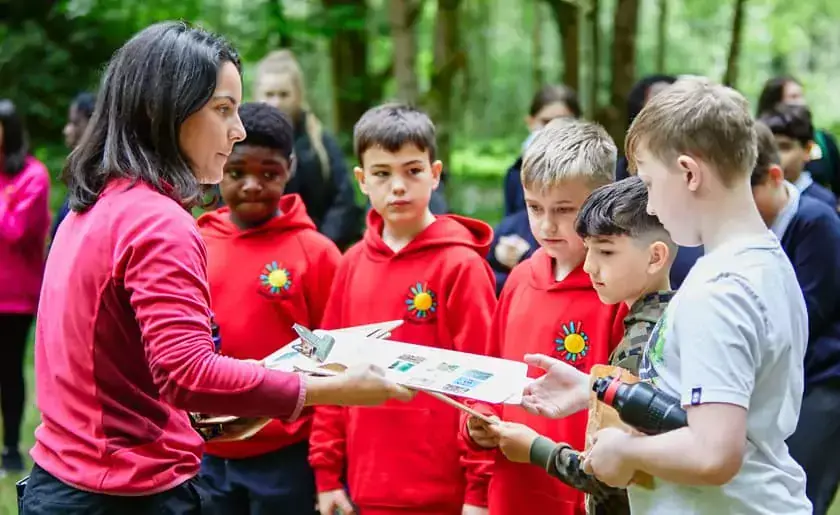Guide to Resources
What is available in the resource library, how it works and how you can use the resources with your learners


The National Education Nature Park provides a library of free resources for biodiversity and climate education. This library will be periodically updated with new resources, up-to-date information and with changes in response to feedback from educators to ensure that learning materials are relevant to age-group, setting and subject areas.
Learning resources
All the learning resources available on the National Education Nature Park platform can be delivered within your existing curriculum, supporting quality-assured biodiversity and climate education at the same time as national curriculum learning. We have collated and created activity options, all of which will have their own page in the library so that you can select them flexibly to include in your teaching.
To support the delivery of a cohesive biodiversity and climate education, informed by evidence-based pedagogy, we have also suggest ways to combine activity options into sessions, and further into units of learning, as explained below.
National Education Nature Park resources
Within the library, identified by a five-step icon, there are activity options specific to the Nature Park process available now. These have been created to help you support learners to develop a deeper understanding of nature in their education site and local area and to contribute their ideas and actions to improving the site for nature and for people. Each resource indicates ways it can be embedded in your existing curriculum teaching. A full explanation of the Nature Park process with its benefits for learners and for nature can be found here.
Sessions
Sessions present up to three activities that offer alternative options, often indoors or outdoors, to teach the same subject matter so that you can choose something that works for your setting. Alongside whichever national curriculum subject a session delivers, they are focused on one of the following: prior knowledge, exploration, enquiry, making change, or communication.
Sessions can be accessed via unit of learning pages, where we have indicated how to combine five or six sessions into a coherent scheme of work, but sessions can function independently, and educators may wish to integrate them into existing schemes of work.
Session guidance includes:
- A quick start activity (promoting retrieval and discussion)
- Up to three activity options to choose from (both indoor and outdoor options where appropriate)
- Green skills developed
- Guidance for delivery
Units of learning
Each unit of learning has a ‘curriculum driver’ allowing it to be delivered in a particular subject area as a scheme of work within a school’s existing timetable, enhancing National Curriculum statutory requirements with biodiversity and climate-related opportunities. Units also include links across additional national curriculum subjects so can be used for interdisciplinary learning and reinforcing prior knowledge across subjects.
Each unit comprises a sequence of sessions supporting a three-pillar approach based on best-practice pedagogy research:
- Knowledge and skills - Building on prior knowledge, promoting skill building and challenging misconceptions
- Working together to make change - Opportunities for action in collaboration with peers or the local community
- Developing resilience - Promoting learner voice, communication skills and wellbeing
Supporting information for each unit includes:
- National Curriculum subject links
- A rationale behind the purpose of the unit
- Common misconceptions and how to address them
- Key concepts and definitions
- Further opportunities for enhancing learning
- Books relating to the unit content and recommended by the Book Trust
- Green career examples celebrating a broad representation of future opportunities
For Early Years Foundation Stage, guidance on how activities can be taught across the Early Learning Goals can be found in the EYFS section of the resource library, alongside suggestions for continuous provision and lots of activity options.
A Whole School Approach
We acknowledge the importance of planned, sustainable change and implementation. Evidence supports a whole school approach to biodiversity and climate as key to success. Embedding units of learning in each key stage can support learners to build a strong and secure understanding of the natural world and how it is changing, and integrating outcomes across subject areas supports the engagement of young people with a range of skills and interests. Guidance and tools that educators can use when building towards this goal can be found within the ‘Getting Started’ topic in the resource library.